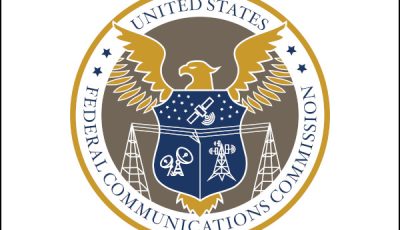Why You Should Care about Net Neutrality
 On Thursday, the U.S. Federal Communications Commission voted 2-1 to begin considering whether to dismantle what Americans have come to call “net neutrality.” The vote — two Republicans for moving forward; one Democrat against — does not mean net neutrality is dead. It merely means the three commissioners currently sitting will issue a notice of proposed rulemaking (NPRM), a dreadfully officious governmental proclamation letting all interested parties know the agency may make a change to the regulatory status quo.
On Thursday, the U.S. Federal Communications Commission voted 2-1 to begin considering whether to dismantle what Americans have come to call “net neutrality.” The vote — two Republicans for moving forward; one Democrat against — does not mean net neutrality is dead. It merely means the three commissioners currently sitting will issue a notice of proposed rulemaking (NPRM), a dreadfully officious governmental proclamation letting all interested parties know the agency may make a change to the regulatory status quo.
From here, the commission will accept public input for 120 days while at the same time studying the pros and cons of returning the internet to the status it held prior to 2015. That year, in an effort to prevent internet service providers from acting on suggestions they might prioritize traffic in order to alleviate traffic jams on the information superhighway, the FCC reclassified ISPs as common carriers. That designation put ISPs in the same category as public telecommunications providers, which are heavily regulated because they play an essential role in the daily lives of almost all Americans.
At the same time, the FCC approved the Open Internet Order, which, in a nutshell, prohibits ISPs from blocking, slowing or otherwise discriminating against websites and online services.
The reclassification and the Open Internet Order were — and continue to be — a Big Deal for a number of reasons, but especially because many ISPs have developed or acquired entertainment services that compete with companies that have no choice but to rely on ISPs to distribute their services. Such situations provide enormous temptation for the common carrier to prioritize its own services while throttling services operated by competitors. In fact, the issue became a significant sore spot in 2016, when ISPs like Verizon and AT&T began allowing their customers to stream music and video for free through services they own. As might be expected, Netflix and others that charge fees cried “foul!”
Fair competition among mainstream services is a battle for corporate giants to wage. Needless to say, Netflix and similar services come down firmly on the side of maintaining net neutrality as established under the Open Internet Order of 2015.
But why should the adult industry care?
Here’s why: If net neutrality falls, fair competition isn’t the only thing that will suffer. It’s not beyond the reach of rational imagination that, once unfettered by regulations requiring them to treat all internet traffic equally, ISPs will succumb to the same sort of conservative pressure that has infected almost every other aspect of modern life. School textbooks are selected by boards of education that have the power to insist publishers rewrite or omit sections that conflict with conservative viewpoints. Religious Freedom Restoration Acts legitimize bigotry and discrimination. Classic works of literature are removed from public and school libraries because they offend some group’s conservative sensibilities about language, religion and/or sexuality.
What will ISPs do when conservatives demand a crackdown on online porn? Even though mainstream companies with deep pockets may be able to “pay to play,” in all likelihood no amount of money will convince ISPs to widen the pipes so traffic can flow easily to sexually explicit content. It’s not beyond the realm of possibility that ISPs could wall off adult entertainment altogether.
Before you cry “censorship,” remember this: The U.S. Constitution protects free speech from abridgement by the government, not by private industry. Except in rare instances, commercial entities enjoy the ability to rein in speech however they’d like in arenas they control.
Conservatives in Congress long have sought ways to clamp down on sexual expression without running afoul of the First Amendment. Freeing ISPs from the bonds of net neutrality would be a convenient way to accomplish the goal, wouldn’t it?
During the round of public comments preceding the current NPRM, the FCC received more than 1 million messages, 97 percent of which urged the commission to maintain the Open Internet Order of 2015. Nevertheless, Chairman Ajit Pai — who served as Verizon counsel when that ISP successfully sued the FCC to overturn the net neutrality rules imposed in 2010, before ISPs were reclassified — is intent on providing “a light regulatory touch” to the companies that control access to a means of communication, education and entertainment that has become a necessity in the 21st century.
The next round of public comments is expected to last through mid-August. Then, the commission will vote on whether to keep existing rules, relax them, do away with them or write altogether new ones. Hopefully, commissioners will listen to the voices of the public before taking action.
The adult industry has a vested interest in maintaining the Open Internet Order of 2015. Make your voice heard.













